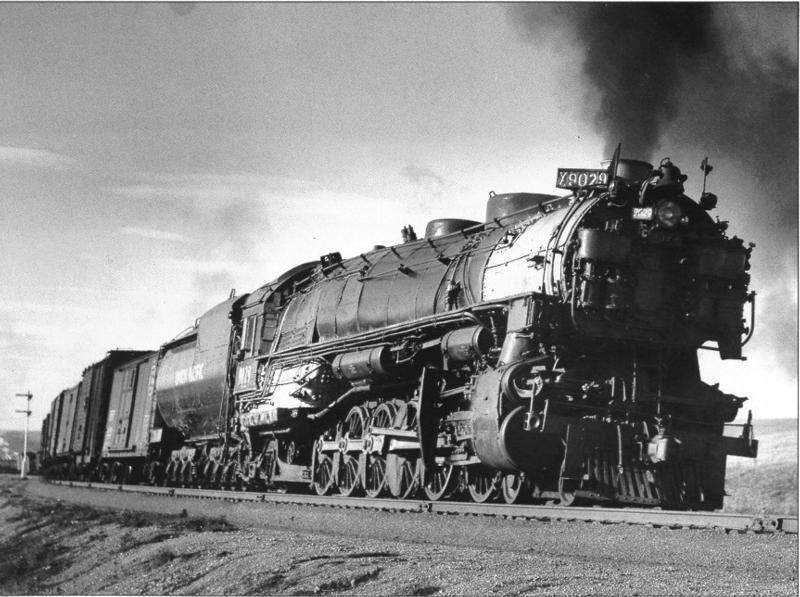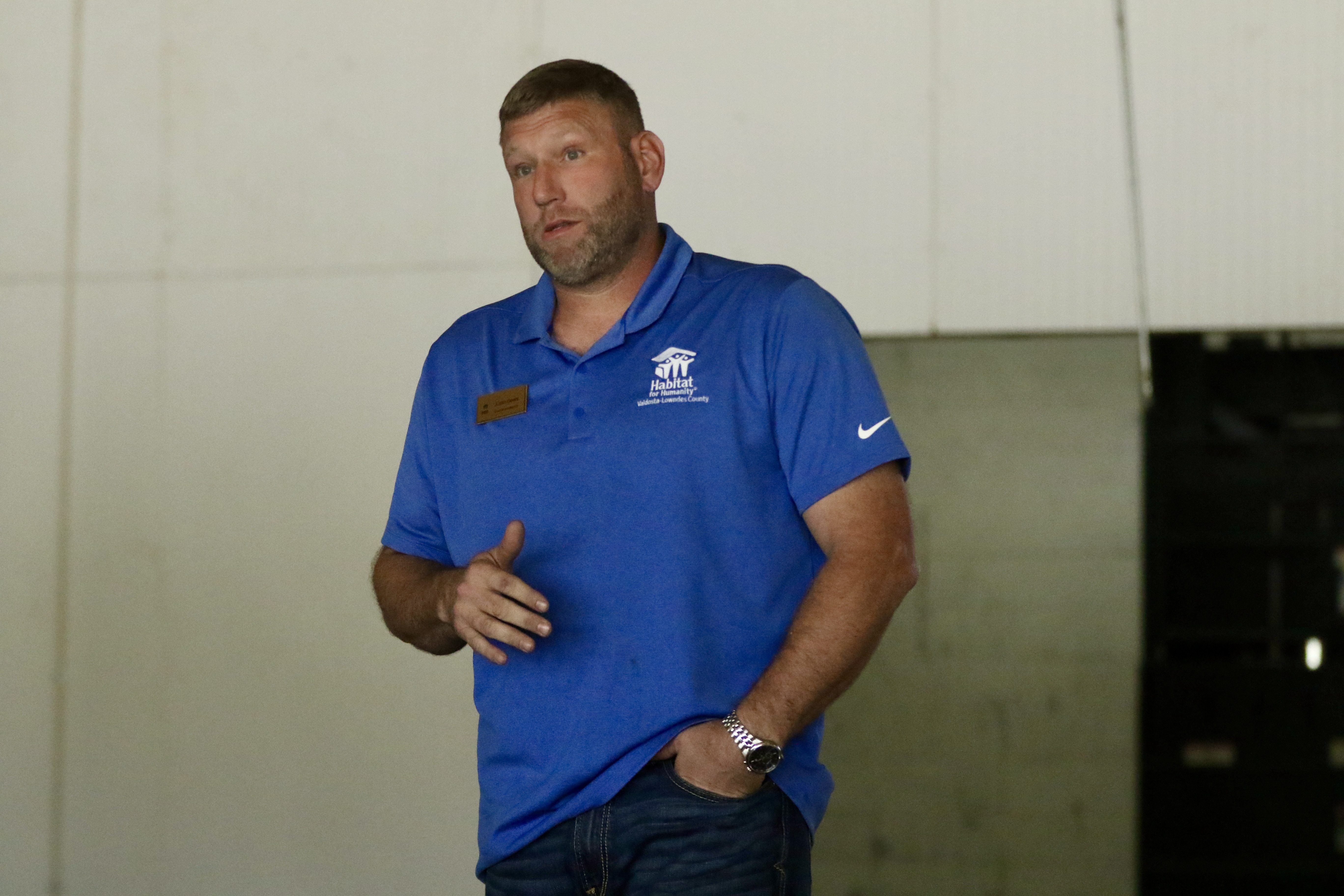Putting a town to the name: Legends, history back names of South Georgia towns
Published 3:00 pm Saturday, February 1, 2020

- Railroads played a large role in the names of several South Georgia and North Florida towns.
Ike J. Goodman was a man on the move.
Goodman was a doctor, a state legislator with the Georgia General Assembly of 1888, and a developer who formed a town along the rails of Cook County.
Goodman was also an in-law. Once married, most folks have in-laws, but Goodman’s status as an in-law proved important to the naming of a town. Goodman and his brother-in-law positioned themselves as rivals.
Goodman had his little town in Cook County. His brother-in-law lived in neighboring Puddleville, which later became Adel. They reportedly competed over several things, small things, but with the coming of the locomotive to South Georgia, they competed for dominance along the railroad.
Talk about family rivalries.
They each wanted a train depot for their respective towns. A place where a train would make stops in a town. A place to refuel, to load and unload cargo, a place where passengers could visit and spend money at restaurants and stores before loading up and moving on.
And who knows, some of those passengers may step off the train at the depot and make the town their home — a place to live, work and raise a family.
So, the stakes were high, and Goodman and his brother-in-law were playing for keeps.
Yet, Goodman had a plan to outmaneuver his brother-in-law. Goodman would play to the railroad’s vanity. Goodman named his Cook County town Sparks in honor of Georgia Southern & Florida Railroad President A.M. Sparks.
A.M. Sparks, however, was unimpressed with having a town named for him. He did not place a depot in the community.
Undeterred, Goodman spent some of his political capital as a legislator to persuade A.M. Sparks. In the General Assembly, Goodman sponsored a bill placing a four-mile-per-hour speed limit on trains passing through the town of Sparks. Goodman’s fellow legislators passed the measure and made it law.
Fast-moving legislation to slow his trains caught the attention of A.M. Sparks. Since the trains slowed anyway, A.M. Sparks built a depot in Sparks.
Still, Goodman won a depot but lost the bet. Puddleville acquired a depot before Sparks. Goodman’s brother-in-law won the contest.
Such are the stories of how some local towns acquired their names and the importance the railroad played in developing many towns.
Take the Lowndes County community of Naylor, for example. Local lore notes that it took its name from “Capt. Naylor,” who was the conductor on the first train to pass through the community.
The Stockton community reportedly acquired its name from J.N.C. Stockton, an Atlantic & Gulf Railroad employee.
The small town of Barney reportedly borrowed its name from the words stenciled on the side of an 1897 boxcar — “Barney-Smith Co.”
And the Clinch County town of Fargo is reportedly named for a 19th century railroad turnaround for a train traveling to and from Valdosta and the Suwannee River. Since the turnaround was as far as the train could go, history claims the town adopted the name Fargo.
In some cases, trains overpowered a community, changing the town’s name by a matter of attrition rather than communal decision.
Take the one-time Berrien County town of McMillan, which was reportedly named for two brothers who contributed land for developing the town and the railroad. Residents may have wanted to call the community McMillan, but railroad workers called it the Alapaha Station because of the stop’s proximity to the Alapaha River. In the passing years, residents dropped McMillan and the word “station” and the town became Alapaha.
Other communities didn’t necessarily feel inspired to name their region for the railroad, but they still felt compelled to find a name because of the trains.
Railroaders dubbed an unnamed Madison County, Fla., community as “Station No. 5” because it was the fifth stop on a rail running from Tallahassee, Fla. Not caring to be known as a number, the community reportedly decided to follow a woman’s suggestion that the town be called Greenville after her native Greenville, S.C. Station No. 5 became Greenville, Fla.
Trains didn’t just move people to name or re-name area towns. In one dramatic case, the railroad prompted an entire town to move.
If not for trains, you may be reading The Troupville Daily Times this morning. Prior to 1860, Troupville was the government seat of Lowndes County.
Originally Lowndesville, Troupville (in some historic records spelled Troupeville) honored Georgia Gov. George M. Troup. Troupville prepared itself for the coming of the railroads. But the Savannah, Florida & Western Railroad ignored Troupville’s preparations. The railroad would pass through an area four miles south of Troupeville. The town followed the train, which gave rise to Valdosta.
Origins of some town names are listed in local history books. They are recorded in historical societies. And they are not all derived from railroads and trains.
Take Puddleville, for example.
In the late 1800s, residents of this Cook County town had an opportunity to rename their town and they took it. Puddleville may have sounded fine when the town started, but moving toward the 20th century, Puddleville just wouldn’t do.
Puddlevillians decided to change the town’s name in 1889. They wanted a unique name and they labored hard upon their decision.
The town adopted Adel. Where did they find this unique name? They found it in Philadelphia.
They took the new name from the middle four letters of the Pennsylvania city’s name Phil-ADEL-phia. Strange, yet true, according to the town’s history.
There is the one-time Lanier County town of Milltown.
In 1925, the town decided to lose its nomenclature’s industrial connection and emphasize the region’s natural abundance of lakes. Milltown became Lakeland.
Hamilton County’s Jasper, Fla., also started with a different name. Originally, the town was called Wallburg, for a man who became instrumental in the development of Tampa, Fla. By 1838, residents sought a new name. They picked Jasper for Sgt. William Jasper, a South Carolina Revolutionary War hero.
Lowndes County’s Clyattville is named for James M. Clyatt and his family, early settlers of the region.
Lowndes’ Dasher is named for O.P. Dasher, an early settler there.
Some folks, however, didn’t like the idea of a town being named for them.
Lawrence A. Wisenbaker is considered the founder of one Lowndes County town. When it was suggested the town be named Wisenbaker or Lawrence, he said no. Wisenbaker did, however, approve of the name Lake Park, which had been suggested by a Savannah resident.
County names come mostly from historic figures.
Hamilton County, Fla., for example, is named for Alexander Hamilton, an American Founding Father, famously killed in a duel with Vice President Aaron Burr. Hamilton was the country’s first treasurer and is best known to modern folks as the man whose face is on the $10 bill.
Lowndes County is named for William Jones Lowndes, a South Carolina leader during and after the Revolutionary War. He was a mild-mannered scholar who reportedly turned down a presidential bid during the days when President James Monroe was re-elected unopposed to his second term.
Clinch County is named for Gen. Duncan L. Clinch.
Berrien County is named for John M. Berrien.
Brooks County is named for Preston L. Brooks.
Echols County is named for Robert M. Echols.
Still other origins are steeped in legend.
Enigma in Berrien County is a riddle of a name, but its origin is as simple as a short parable. An enigma is defined as something puzzling or inexplicable, a riddle.
Years ago, residents were searching for a community name. Supposedly, they went round and round, with nobody being satisfied with any of the suggestions. Finally, residents asked one man if he had any ideas. Quiet throughout the discussion, the man reportedly drawled, “It’s an enigma to me.”
The name Enigma stuck, according to legend.
For the Cook County town Lenox, a funny tale has two men sitting along the street watching the day pass by. Upon seeing a particularly skinny beast of burden, one man reportedly noted, “That’s a mighty lean ox.” Lenox, according to legend, took its name from that lean ox. True or not, the town often celebrates with a festival called Lean Ox Days.
Lee, Fla., is reportedly named to honor Confederate Gen. Robert E. Lee. Lore has it that Gen. Lee briefly visited Lee, Fla., following the Civil War, but this legend does have its detractors.
And there are always those tales of rivalries leading to a town’s name.
Reportedly, the Brooks County town of Pavo acquired its name from one such rivalry.
Two families vied to name the town. Each group wanted the town named for its respective family. The Peacock family moved first to end the debate of naming the town after a family. The Peacock family suggested Pavo, and the other family agreed to the compromise.
The town became Pavo and then the Peacock family revealed that “pavo” is Latin for peacock.
Dean Poling is an editor with The Valdosta Daily Times. The article is based on his past research and reporting on South Georgia and North Florida towns.





